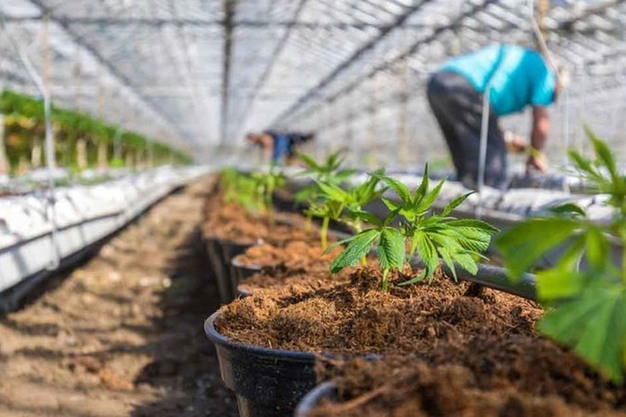The Ministry of Commerce, Industry and Tourism, through Colombia Productiva and with the support of Biointropic, announced the launch of the first comprehensive strategy focused on the industrial development of the cannabis and hemp sectors that has been advanced in the country.
With an initial investment of 5 billion pesos, the company seeks to take advantage of the potential of these sectors for the development and production of agricultural bio-inputs, cosmetics, textiles, packaging, construction materials, veterinary products, food, beverages and medicinal products, among others, which are increasingly in demand in the international market.
To this end, the 'Productive development of the cannabis and hemp industries' program will work on four fronts: specialized training for at least 3,000 people working in these sectors and a fund of 2.25 billion pesos for the co-financing of at least 30 productive linkage projects. In addition, connection rounds to strengthen commercial relations, and the generation of specialized studies to help entrepreneurs in these sectors make appropriate decisions for the growth of their businesses.
The minister added that "with this program that we are launching, we seek to take advantage of these opportunities, in line with our commitment to agribusiness and the diversification of the productive matrix in the territories, part of the Reindustrialization Policy that we have in place in the government of President Gustavo Petro Urrego."
Hernán Ceballos, general manager of Colombia Productiva, said that "with the program 'Productive development of the cannabis and hemp industries' we seek to contribute to overcoming the challenges faced by these sectors in order to consolidate themselves in the market."
He added that in the Government of Change "we will address actions to improve integration between growers, processors and marketers in the production chain; strengthen knowledge and technical capabilities for the development of the industry; promote coordination between the public and private sectors; encourage investment in innovative and sustainable production projects; and improve productivity and quality, among other key issues for the search and exploitation of new business opportunities for these sectors."
Training, co-financing, connection wheels and sector intelligence
As part of the program 'Productive development of the cannabis and hemp industries', in 2024 and with the support of the specialized firm Biointropic, work will be carried out under four approaches:
1. Call for co-financing of productive projects: $2.25 billion will be available to co-finance at least 30 productive linkage projects involving at least 100 productive units (up to $75 million per initiative). These may be projects for the development of prototypes and products, pre-commercial validation, adaptation of processes for greater sustainability and efficiency, efficacy studies and agricultural technology packages, in sectors such as agricultural bioinputs, cosmetics, textiles and apparel, materials (such as construction and packaging), pet products, food and beverages, and medicinal products, among others.
2. Call for training: practical training for 3,000 people. Seeks to contribute to updating knowledge and key information for human talent in the cannabis and hemp industries, including: general aspects, new uses and applications of hemp, market, new business models, financial instruments and sustainability.
3. Connection roundtables: two spaces will be held to generate high-value contacts and promote interaction and linkages between industry players. The first will be focused on getting to know the key players in the ecosystem to create potential linkages; and the second will connect the solutions of the productive projects co-financed with potential clients and/or allies.
4. Sector intelligence: mapping studies and analysis of technical capabilities for the development of the industry in the territories, including updated information on the status and capabilities of these industries, behavior of the sectors and their growth projections, trends, challenges, opportunities, best practices and success stories, among others.
Global demand for cannabis and hemp to reach US$22.36 billion
The cannabis and hemp industries have great potential for the development of sophisticated products, in line with the Reindustrialization Policy's objective of increasing the diversification and sophistication of Colombia's productive matrix. These inputs can be used to produce medicinal products, cosmetics, beverages and food, dietary supplements for human and animal use, construction and packaging materials, textiles and clothing, and veterinary products, among others.
Projections by entities such as ProColombia and the Government of Valle del Cauca indicate that these economic activities could generate up to 44,000 jobs in the country by 2030.
In addition, projections by Mordor Intelligence Research & Advisory indicate that, by 2028, global demand for industrial hemp will reach USD 4.9 billion and for medical cannabis USD 22.46 billion.
According to the Ministry of Justice, Colombia today has more than 57,000 hectares of legal cannabis crops and more than 3,000 licenses granted for the use of seeds for planting, cultivation of plants and processing of medical cannabis.
Source: mincit.gov.co
